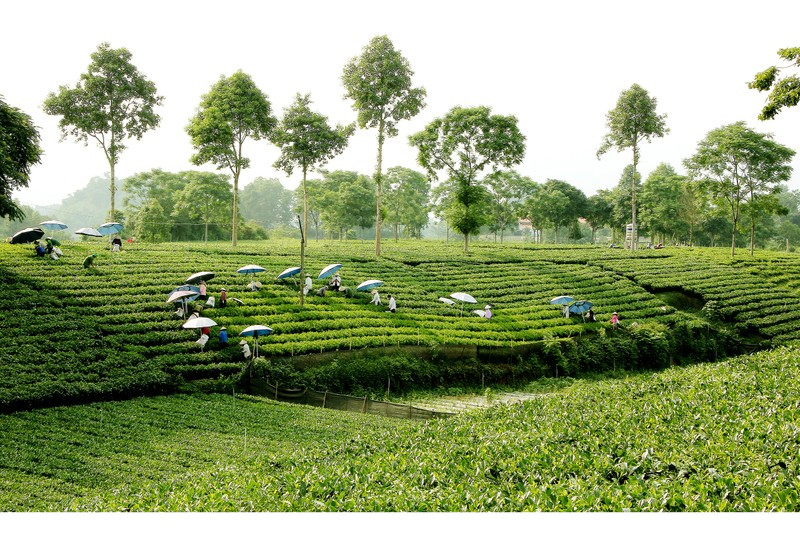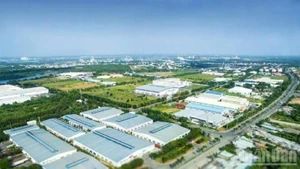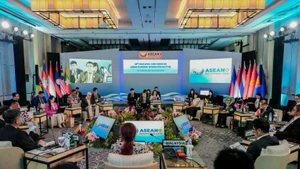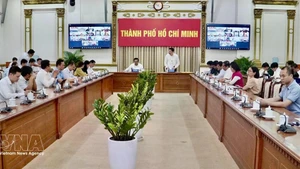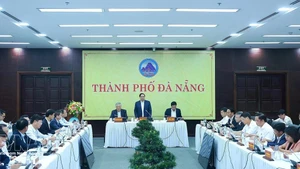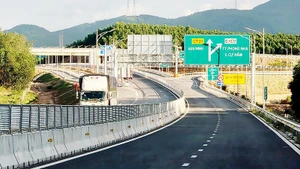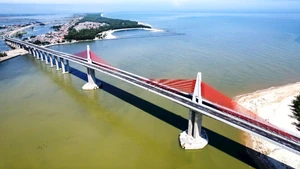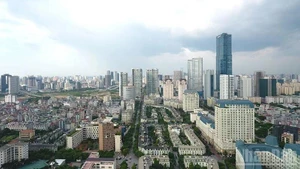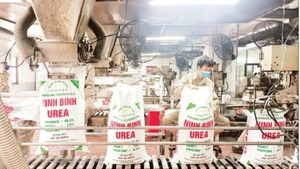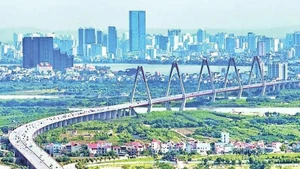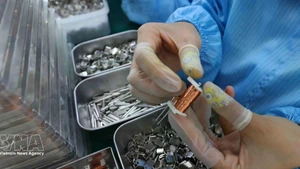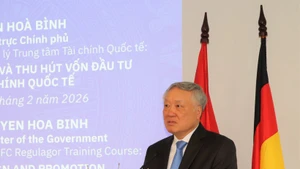According to incomplete statistics, the country currently has about 500 models of agricultural and rural tourism in operation. However, agricultural tourism still has many difficulties and limitations in planning, development orientation, quality assessment criteria and management capacity.
Various types of tourism
In recent years, many localities across the country have paid attention to building and implementing programmes to preserve and develop craft and craft villages. The successful models of organic and high-tech agricultural production, associated with community-based tourism, are not only attracting tourists but also contributing to the development of the local economy.
At the forefront of agricultural tourism development is Hanoi city with the construction and development planning of 17 craft villages associated with tourism; Thua Thien Hue province has approved a project on developing community tourism associated with craft villages.
Meanwhile, Binh Dinh Province has launched a pilot project to develop tourism in craft villages for the 2020-2025 period; and Ninh Thuan Province has approved a project to develop typical tourist attractions associated with brocade and ceramic weaving villages. These are potentials for localities in particular and agriculture in general, to develop tourism.
At the community tourist site of Ms. Dao Thi My Le, in Hamlet 3, Nhon Thanh Commune, Ben Tre City, Ben Tre Province, the family has four generations of mat weaving.
Nhon Thanh mat weaving village is more than a hundred years old, but there was a time when more than 90% of households closed down because they could not overcome the difficulties of the market mechanism.
But thanks to the initiative to develop community tourism, many families like Ms Le’s have been able to live with the traditional profession.
Thanks to tourists coming to visit, experience and buy souvenirs, not only the traditional profession are still maintained, but her family, as well as many other households in the commune, have a stable income, Le said.
Exploiting available advantages to develop local tourism through cultural values and habits of the people, Thua Thien Hue Province has also implemented it effectively.
These can be mentioned as models of floriculture and organic agriculture associated with tourism, while providing clean products to the market and forming entertainment spots for people, improving product value and income for farmers.
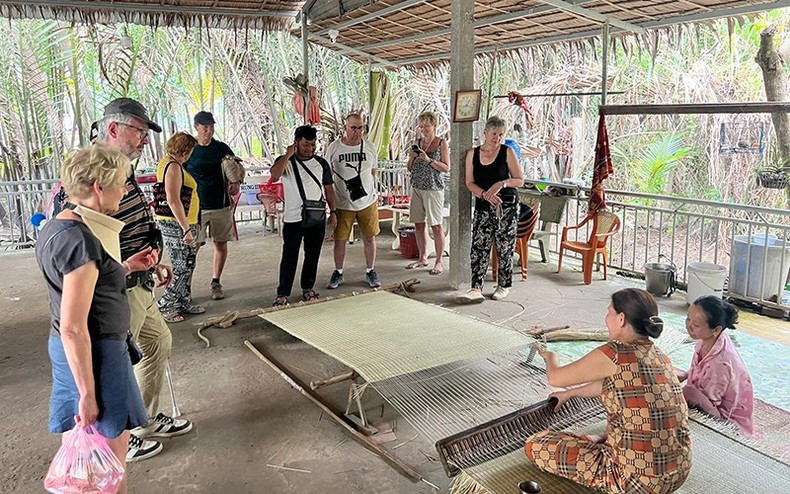 |
| Foreign tourists watch the mat weaving process in Nhon Thanh Commune (Ben Tre City, Ben Tre Province). |
The high-tech agricultural model associated with experiential tourism in Huong An ward has attracted a large number of tourists to visit and buy products at the garden, bringing high economic efficiency.
With this prospect, Hue City has continued to support people to act as the link between Huong An ward and businesses to form a planning area, with a total area of about 5,000 hectares, forming a value chain of agricultural products.
Thanks to the involvement of the local administration, and the consensus of the people, the new economic model from agricultural tourism of Huong An people, has become much more professional and methodical.
Perfecting step by step
According to Deputy Minister of Agriculture and Rural Development Tran Thanh Nam, agri-tourism has contributed more and more to the economic development of new rural communes, such as creating new job opportunities, boosting the production and selling of local agricultural products, and providing tourism services.
Agri-tourism has improved income and quality of life for local communities. Besides, the appearance of villages has also changed in the direction of modernity.
On February 22, 2022, the Prime Minister issued Decision No. 263/QD-TTg, approving the National Target Programme on building new-style rural areas for the 2021-2025 period.
Accordingly, in addition to 11 component contents, there are 6 more specialised thematic programmes. In particular, for the first time, rural tourism has become a programme to direct synchronous and systematic implementation throughout the country, in association with new rural construction.
These are considered specific orientations for localities to develop plans to awaken the local agricultural tourism potential.
The agricultural industry is aiming to diversify tourism products, fully exploiting the strengths and unique regional characteristics in tourist villages, attracting domestic and international tourists, contributing to rural economic development.
Deputy Minister of Agriculture and Rural Development Tran Thanh Nam
Currently, to promote the strengths of each locality, strengthen the management of rural agri-tourism, as well as improve the capacity of managers and stakeholders, the Ministry of Agriculture and Rural Development has cooperated with the Ministry of Culture, Sports and Tourism to review the planning, human resource development, and at the same time improve the role of local management and the capacity of subjects involved in the field of agri-tourism; as well as propose appropriate solutions to be implemented in the near future.
With these specific activities, the agricultural industry is aiming to diversify tourism products, fully exploiting the strengths and unique regional characteristics of tourist villages, attracting domestic and international tourists, and contributing to rural economic development.
"The agricultural industry is aiming to diversify tourism products, fully exploiting the strengths and unique regional characteristics in tourist villages, attracting domestic and international tourists, contributing to rural economic development.
Deputy Minister of Agriculture and Rural Development Tran Thanh Nam"
However, according to the Deputy Director of the Department of Grassroots Culture under the Ministry of Culture, Sports and Tourism Vi Thanh Hoai, to successfully create a tourist village model, it is necessary to review policies and systems, management documents and synchronous adjustments. The involvement of relevant ministries and branches is also required.
While waiting for the adjustment of the above policy and cooperation to come into practice, the agricultural tourism model has now been paid much attention by localities, creating a flexible mechanism for development.
The strengthening of human resource training is aimed at creating stability in social security and building a commitment to a cooperation mechanism in terms of economics, society, environmental protection, etc.
It can be seen that agri-tourism is one of the important breakthroughs of the rural economy.
